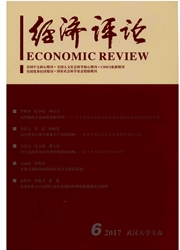

 中文摘要:
中文摘要:
本文就收入不平等影响总消费的理论基础、机制及计量方法进行了深入的探讨。首先基于一个最优消费决策模型,给出边际消费倾向递减的理论条件,省际面板数据校准表明中国居民边际消费倾向递减。通过构建一个包含基尼系数的宏观消费函数,本文严格证明了收入不平等对中国居民总消费的负面影响,指出边际消费倾向的其他特征无法确定收入不平等对总消费影响的唯一性。基于宏观消费函数,本文给出了计算收入不平等的消费损失公式以及收入不平等变化对总消费变化影响的公式。运算结果表明:1996—2010年期间,中国居民收入不平等导致的绝对消费损失年均为1383.56亿元(1996年价),损失率为2.68%;由于基尼系数增大导致居民总消费下降510.9亿元,占居民总消费变化值的1.06%。
 英文摘要:
英文摘要:
Through the establishment of an optimal consumption model and corresponding parameter calibration, this paper confirms the diminishing marginal propensity of Chinese residents' consumption, then we build a macro consumption function containing the Gini coefficient to prove the negative effect of residents' income inequality towards consumption. The paper also gives the methods to calculate the impact of income inequality on consumption, and the results show that, from 1996 to 2010, Chinese Tesidents' income inequality leads to the absolute consumption loss about 138. 356 billion yuan per - year, and the loss rate is 2. 68% ; the Gini coefficient' s increase leads to a decline in the total consumption of the residents about 51.09 billion yuan, accounting for 1.06% of the changes of residents' total consumption.
 同期刊论文项目
同期刊论文项目
 同项目期刊论文
同项目期刊论文
 期刊信息
期刊信息
